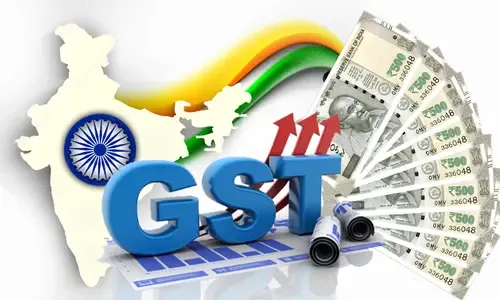How Will GST Reforms Enhance Maharashtra's Economy?

Synopsis
Key Takeaways
- GST reforms are set to boost Maharashtra’s economy.
- Reduction in refined sugar GST will lower prices.
- Processed food prices are expected to decrease by 6-7%.
- Textile manufacturers will benefit from lower input costs.
- IT companies can now claim refunds, enhancing competitiveness.
New Delhi, Oct 5 (NationPress) The recent Goods and Services Tax (GST) reforms in Maharashtra are poised to provide a significant boost to the state's agriculture, industry, and services sectors. These changes aim to reduce costs and enhance competitiveness, as confirmed by government officials on Sunday.
The adjustments in GST that have lowered prices for consumers while improving profit margins for producers are anticipated to positively impact various industries, including sugar, processed foods, fisheries, handlooms, and IT services.
For instance, the GST reduction on refined sugar from 12% to 5% is expected to decrease wholesale sugar prices by approximately 7%, greatly benefiting Maharashtra's extensive sugar-producing regions such as Kolhapur, Sangli, Satara, Pune, Solapur, and Ahmednagar.
Additionally, the reductions on processed fruit products, including juices and jams, will aid horticultural areas in Nagpur, Nashik, Jalgaon, and the Konkan region. The cut in GST rates is projected to lower the prices of processed food products by 6-7%, thus encouraging increased consumption, enhancing value addition, and boosting the sales of produce from farmers in these horticultural belts, according to an official statement.
The decrease in GST to 5% on fabrics, footwear, and handmade crafts will benefit traditional clusters in the textile and handicraft sector, such as Solapur, Ichalkaranji, Kolhapur, and Paithan.
Moreover, this GST adjustment will cut input costs for garment and home textile manufacturers by 6-7%, thereby improving the competitiveness of Maharashtra’s power loom sector, as stated by the government.
Authentic Warli paintings, solar panels, solar water heaters, and other renewable devices are also anticipated to see a price drop of 6-7%. Furthermore, the pharmaceutical industry will benefit from a reduced 5% GST on medicines, along with exemptions on health and life insurance premiums, which will make insurance coverage more affordable.
Importantly, new GST regulations now allow numerous IT/ITES companies in Maharashtra to categorize their services as exports and claim GST refunds, which significantly enhances their cash flow and global competitiveness, as reported.









